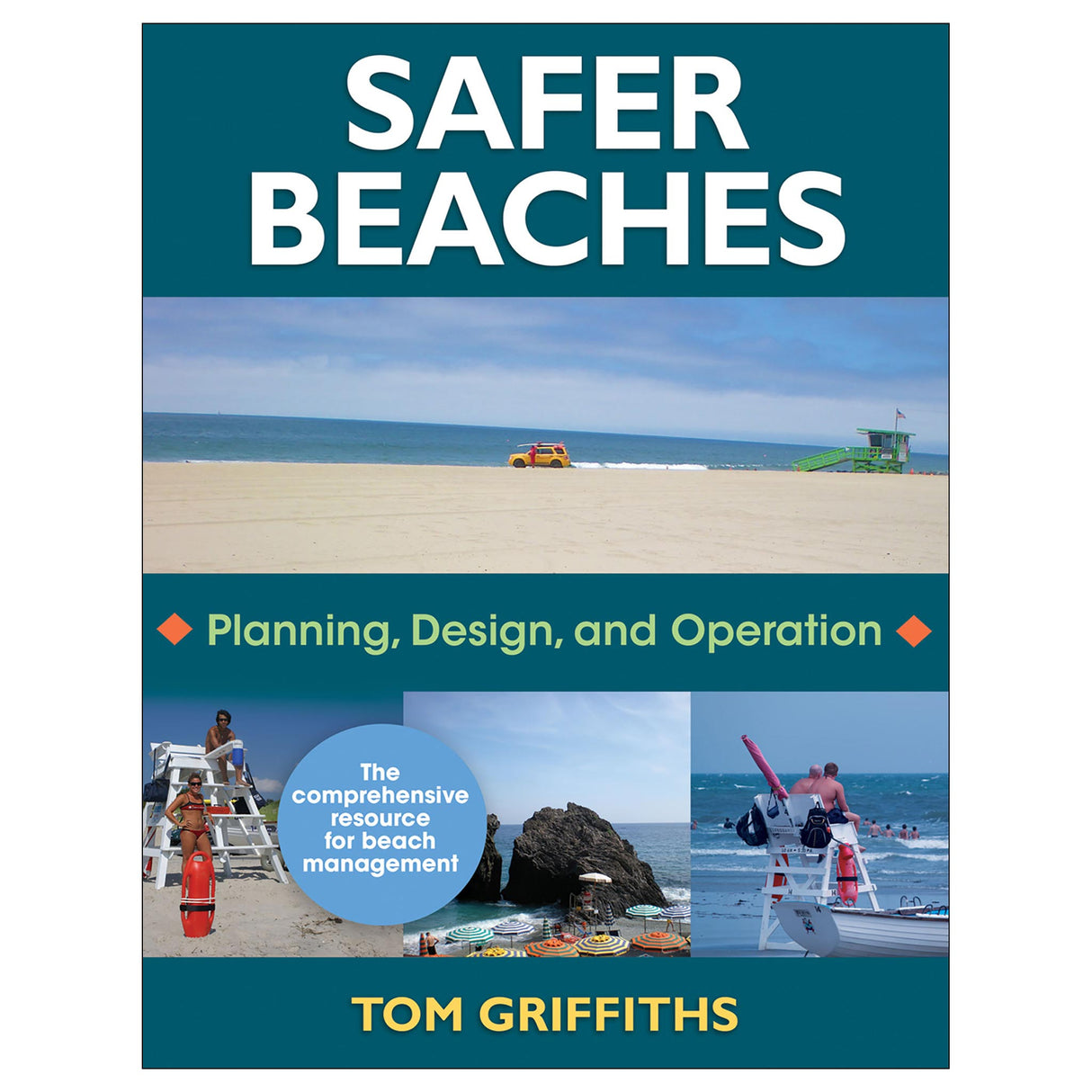Safer Beaches PDF
Planning, Design, and Operation
Author: Tom Griffiths
$39.00 USD
Access Duration: 10 Years
Safer Beaches: Planning, Design, and Operation offers a systematic, practical approach to planning, designing, renovating, and operating all types of beaches. This authoritative reference covers the broad topics that beach managers, lifeguards, administrators, and beach enthusiasts need to know, such as safety for nonswimming beaches and swimming beaches, water quality and beach maintenance, and funding. And it delves into the finer details that will help you balance safety and beachgoers’ enjoyment.
Safer Beaches provides something rarely found in other aquatic books: practices in beach management and protection. It uses a needs-analysis approach to help you identify programming and activities that will maximize people’s experience at the beach. This practical resource will help you
• understand the planning, design, building, and operational concepts and put them to use right away;
• take the guesswork out of beach management by guiding you step by step through the decisions and considerations necessary for successful operations; and
• avoid dangerous and costly mistakes during the planning and design stages of both swimming and nonswimming beaches.
Written by a leading aquatic professional and many influential contributors, with visually rich and instructive photos and illustrations, Safer Beaches supplies you with the latest information about innovations in beach design, technology, and building methods. It thoroughly explores every key aspect of planning, designing, and operating a beach, providing you with many examples and photos to give you a clear picture of the entire process. In its expansive coverage, it explores new territory in signage, risk management, and accessibility. And it places a heavy emphasis on safety, with five chapters devoted to separate safety topics.
Safer Beaches is an essential resource for all who have anything to do with managing beaches. It will help you be more effective in your job, and it will help beachgoers enjoy their recreational experiences to the fullest.
Chapter 1. Beach Types and Hazards
Surf Beaches
Confined Flat-Water Beaches
River Beaches
Land-Based Beach Hazards
Summary
Chapter 2. Beach and Waterfront Funding
Beach Funding Priorities
Core Funding Sources
Summary
Chapter 3. Accessibility
Going Beyond the Americans with Disabilities Act
Policy Issues
Reasonable Accommodation
Attitudes
Guidelines From the Recreation Access Board
Summary
Chapter 4. Liability and Risk Management
Negligence
Negligence Per Se
Degrees of Negligence
Defending Negligence Claims
Contributory and Comparative Negligence
Governmental Immunity
Good Samaritan Statutes
Premises Liability
Recreational Use Statutes
Risk Management
Managing Aquatic Facilities
Reducing Risk at Open-Water Races
Summary
Chapter 5. Effective Signage: Educating and Warning the Public
Standards for Water Safety Signs
Establishing Shoreline Zones
Placing Beach Flags for Safety Zone Conditions
Channeling the Public to Beach Access Points
Using Access Points to Warn and Educate
Prioritizing the Safety Message
Posting and Distributing Healthy Swimming Information
Summary
Chapter 6. Nonswimming Beach Safety
Reasons for Keeping People Out of the Water
Methods to Keep People Out of the Water
Overall Considerations
Summary
Chapter 7. Swimming Beach Safety
Environmental Considerations
Designated Swimming Areas
Designated Wading (Nonswimming) Areas
Support Features and Facilities
Summary
Chapter 8. Above-Water Structure Safety
Types of Above-Water Structures
Potential Above-Water Structure Hazards
Safety Strategies for Above-Water Structures
Summary
Chapter 9. Operational Considerations and Safety Strategies
Policy Decisions Affecting Safety and Beach Operations
Universal Proactive Strategies
Proactive Strategies at Guarded Beaches
Proactive Strategies at Unguarded Beaches
Summary
Chapter 10. Water Quality and Beach Maintenance
Recreational Water Illnesses (RWIs)
Urban and Agricultural Sources of Pollution
Other Waterborne Concerns
Controlling Aquatic Plants and Animal Pests at Beaches
Beach Maintenance
Beach Sand Grooming
Protecting Marine Wildlife
Summary
Chapter 11. Safety Practices at Guarded Beaches
Lifeguard Requirements and Competency
Psychology of Lifeguarding
Strategies for Improving Vigilance and Emergency Response
Summary
Chapter 12. United States Lifesaving Association and International Life Saving Federation
History of the United States Lifesaving Association
Impact of the USLA on American Lifesaving
International Life Saving Federation
Summary





